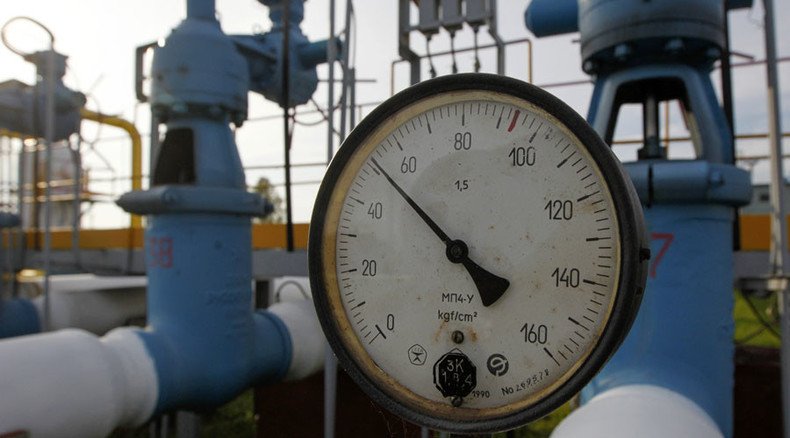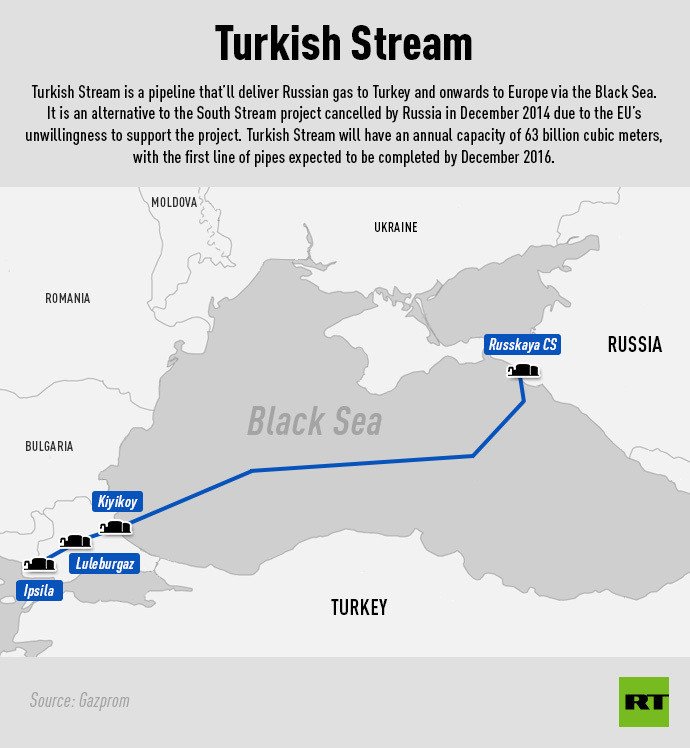Talks on Turkish Stream on hold till November – media

Negotiations between Russia and Turkey over the first stage of the Turkish Stream gas pipeline project will continue at the end of autumn when Ankara’s new government is to be formed, Russian daily Kommersant cited unnamed sources on Monday.
According to the Russian president’s spokesperson, that is when Vladimir Putin and Recep Tayyip Erdogan are planning to meet.
READ MORE: Putin & Erdogan discuss energy projects in Azerbaijan closed-door talks
Talks have not been officially stopped, but were de facto halted since mid-June, according to the sources from the Russian government and Gazprom. The fact that Turkey currently has no cabinet of ministers is the main obstacle to the negotiations. The issue of the pipeline’s number of threads and gas price do not play such important role, they added.
"Putin and Erdogan agreed in Baku to discuss the first thread of Turkish Stream, the other three will be discussed later."

Earlier Reuters reported that talks on the project had been suspended but Russian Energy Minister Aleksandr Novak and Turkish Ambassador to Russia Ümit Yardim denied the rumors.
READ MORE: Russia, Greece sign €2bn deal on Turkish Stream gas pipeline
Turkish Stream will be made up of four threads, each with the capacity of 15.75 billion cubic meters. The pipeline will pass 660km under the Black Sea, followed by 250km in the direction of the European part of Turkey.
The first line of the Turkish Stream will cost €3.3 billion ($2.9 billion) and is expected to entirely meet the growing demands of the Turkish market.
READ MORE: Gazprom, Ankara agree to start Turkish Stream gas deliveries in Dec 2016
In December, Gazprom and Turkish company Botas signed a memorandum of understanding on the construction of the Turkish Stream from Russia to Turkey via the Black Sea with a capacity of 63 billion cubic meters (bcm) of gas annually. About 16bcm will be supplied to Turkey while the remaining 47bcm will go to a hub on the Greek - Turkish border to be transported onwards to Europe.
The Turkish Stream pipeline is replacing the South Stream, which was suspended in December as the EU blocked its implementation.












